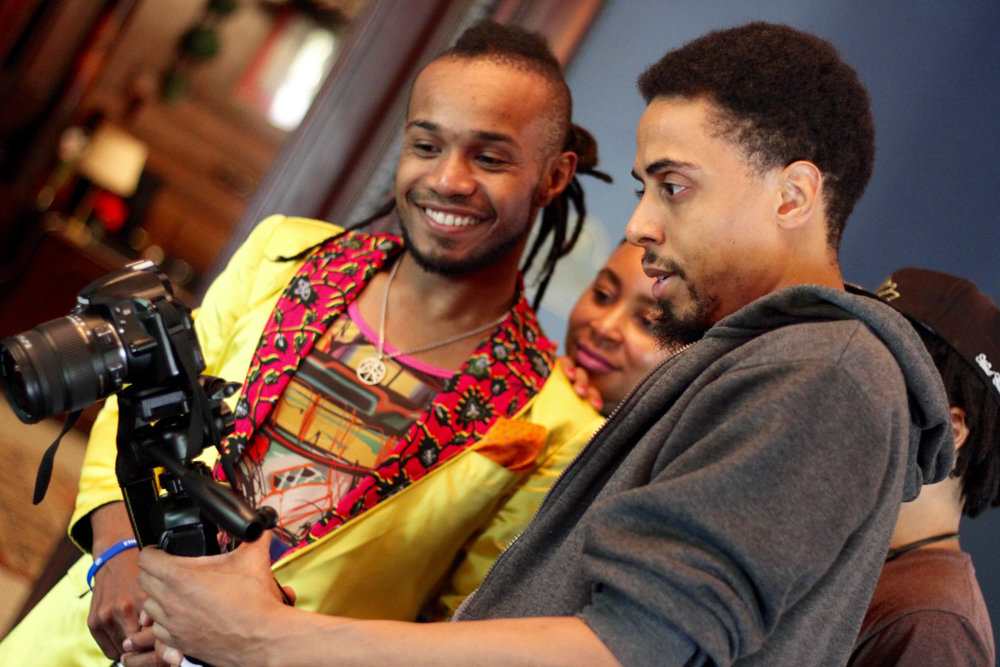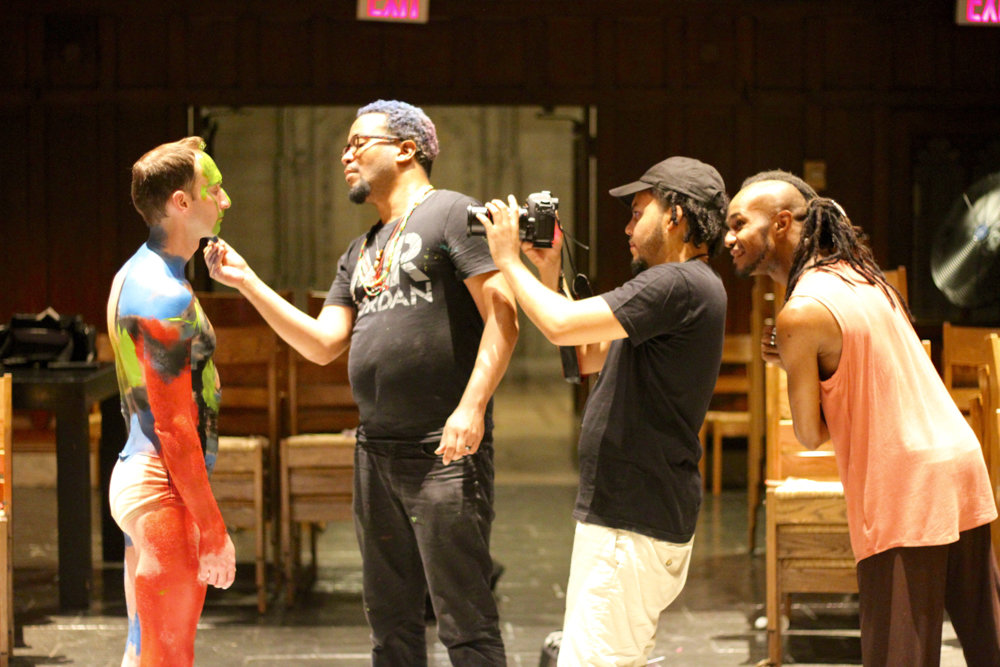Filmmaker finds himself in Ethical Culture’s history
Jé Hooper is covering the history of the Ethical Culture Society, and in the process, is making some history himself.
The Riverdale resident is behind the new abstract film “Humanitas: A Conscious Coloring of Kindness,” highlighting the relationship between Ethical Culture founder Felix Adler and civil rights activist W.E.B Du Bois through inventive cinematography. Hooper — who is working toward becoming the first African-American clergy leader for the national Ethical Culture movement — combines, contemporary ideas and science-fiction finesse, laced with experimental style and art.
“I got interested in Felix Adler and his life in relation to his work and support for W.E.B. Du Bois,” Hooper said. “They combatted global racial injustice and … also came together with two different cultural experiences.”
Like many who found Adler’s movement later in life, Hooper didn’t grow up in Ethical Culture society. Instead, his spiritual upbringing came from a black church in Richmond, Virginia. While it provided a culture and environment of social justice he’s always loved, it still made Hooper feel in the end he wasn’t fully accepted as a bisexual man.
“I developed my own theological perspective,” he said. “I really had to realize that I could not be in a space that couldn’t accept all of me. It wasn’t about anyone removing me or throwing me out the church. If I’m queer and you’re going to talk negatively, I can’t be a part of it. I honor all religion and I appreciate everyone’s religious beliefs.”
Ethical Culture is a community of humanists, Hooper said. It was what inspired his training to be a clergy leader at the American Ethical Union.
“I know that I am in a community that is identifiably Jewish and some would identify as predominately white,” Hooper said. “I was asked by so many, how did I end up leaving the black church and being a part of this community where I don’t see many people that look like myself?
“I appreciate the justice. I’m not looking all the time for a reflection of myself.”
Hooper earned a master’s degree in arts and cultural management from Pratt Institute. He then went on to earn a theology master’s degree from Union Theological Seminary at Columbia University with a concentration in interfaith and interreligious engagement.
Last year, Hooper was ordained an interfaith minister through the New Seminary in Brooklyn, which describes itself as the oldest interfaith seminary in the world.
Today, Hooper is an interdisciplinary arts doctoral candidate at Ohio State University.
“Humanitas,” on the other hand, is a project that allowed Hooper to recruit friends — not necessarily professional actors — who believed in his vision.
“The gentleman who plays Adler works an office job,” Hooper said. “And was like, ‘I would have never thought of myself as doing this. And I can’t see myself now without art and I can’t see it without acting. And now I want to take acting classes.’”
“Humanitas” premiered at The New York Society for Ethical Culture’s Central Park West headquarters. The project took about four months to film, and Hooper and his team kept editing right up until the day before the show.
Through “Humanitas,” Hooper combines African traditions and culture and the personal story of a Jewish immigrant to tell a story of the Pan-Africanism movement and what it means to be an immigrant.
“I basically wanted to bring and make it so people could see their own stories and reflection,” Hooper said. “So the idea of (the) film was great because it allowed me to take stories I was seeing and bring them together to bring meaning for communities that would often not see themselves.”
Although Adler and Du Bois lived long ago, Hooper presents their history and meeting in a way that makes them current beyond their societal contribution through futuristic styles like special visual effects.
In a lot of ways, the film is like a Michael Jackson or Billy Joel music video experience, Hooper said. But in the same beat, the film plays off of a Victorian-era theme and is silent with cue cards included. And then, in some ways, it’s a reflection of Sidney Lumet’s 1978 musical “The Wiz.”
Marvel’s “Black Panther” is rooted in an ultra-modern setting while still speaking to the ancient culture of Africa and Afro-futurism, and “Humanitas” balances on a similar construct, Hooper said. Despite its complicated themes, the film is meant for anyone interested in an artistic history lesson.
Whether it be artistically or academically, Hooper’s journey is far from over, a path with the Ethical Culture Society still lays in front of him.
“The best advice that was given to me was by a Christian minister when I explained what I was doing,” Hooper said. “He said, ‘I’m glad you went where the love is.’ And I always say Ethical Culture is where the love is, and Ethical Culture is family.”
CORRECTION: Jé Hooper, who recently released an abstract film about the early days of the Ethical Culture Society in relation to civil rights activist W.E.B. Du Bois, wants to become the first African-American clergy leader in the national Ethical Culture movement. A story in the March 7 edition incorrectly shared at what level Hooper would be the first in, if successful.

















